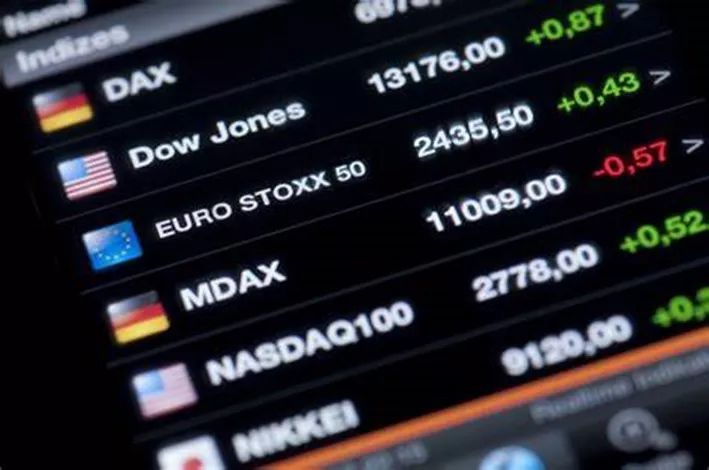Index funds are popular investment vehicles that aim to replicate the performance of a specific market index, such as the S&P 500 or the Nikkei 225. Understanding their trading hours is crucial for investors to make informed decisions. This article delves into the trading times of index funds, highlighting the differences between mutual funds and exchange-traded funds (ETFs), and provides insights into global trading sessions.
Understanding Index Funds
What Are Index Funds?
Index funds are mutual funds or ETFs designed to track the performance of a specific market index. Unlike actively managed funds, index funds aim to replicate the index’s performance by holding the same securities in the same proportions. This passive investment strategy often results in lower fees and broad market exposure.
Types of Index Funds
There are two primary types of index funds:
- Mutual Funds: These are managed by investment companies and are bought or sold at the end of the trading day at the net asset value (NAV).
- Exchange-Traded Funds (ETFs): Traded on stock exchanges like individual stocks, ETFs can be bought or sold throughout the trading day at market prices.
Trading Hours of Index Funds
Mutual Funds
Mutual funds, including index mutual funds, do not trade on an exchange. Instead, they are bought or sold at the end of the trading day at the NAV, which is calculated after the market closes. In the United States, this means trades are executed at 4:00 PM Eastern Time (ET). Investors can place orders during the day, but the transaction will only be processed at the close of the market.
Exchange-Traded Funds (ETFs)
ETFs, including index ETFs, trade on stock exchanges and can be bought or sold throughout the trading day during market hours. In the U.S., the New York Stock Exchange (NYSE) and Nasdaq operate from 9:30 AM to 4:00 PM ET on weekdays. However, with advancements in electronic trading, some brokers offer extended trading hours. For instance, Charles Schwab has introduced 24-hour trading for certain ETFs, allowing investors to trade from 4:00 AM to 8:00 PM ET on weekdays. :contentReference[oaicite:0]{index=0}
Global Trading Hours
Trading hours for index funds vary globally due to different time zones and market regulations. For example:
- Tokyo Stock Exchange (TSE): The TSE operates from 9:00 AM to 3:00 PM Japan Standard Time (JST), with a lunch break from 11:30 AM to 12:30 PM. :contentReference[oaicite:1]{index=1}
- Hong Kong Stock Exchange (HKEX): Trading occurs from 9:30 AM to 4:00 PM Hong Kong Time (HKT), with a lunch break from 12:00 PM to 1:00 PM.
- London Stock Exchange (LSE): The LSE operates from 8:00 AM to 4:30 PM British Summer Time (BST).
- New York Stock Exchange (NYSE): As mentioned, the NYSE operates from 9:30 AM to 4:00 PM ET.
It’s important for investors to be aware of these time differences when trading index funds across different markets.
Factors Influencing Index Fund Trading
Market Liquidity
Liquidity refers to how easily an asset can be bought or sold without affecting its price. Index ETFs, being traded on exchanges, generally offer higher liquidity compared to mutual funds. This allows investors to enter or exit positions more efficiently during market hours.
Market Volatility
Market volatility can impact the performance of index funds. During periods of high volatility, prices can fluctuate significantly within short time frames. Investors should be mindful of these fluctuations when trading index funds, especially during the opening and closing hours of the market when volatility tends to be higher. :contentReference[oaicite:2]{index=2}
Order Types
Investors can place different types of orders when trading index funds:
- Market Orders: These orders are executed immediately at the current market price.
- Limit Orders: These orders are executed only at a specified price or better.
- Stop Orders: These orders become market orders once a specified price is reached.
Understanding these order types can help investors manage their trades effectively during different trading hours.
Best Practices for Trading Index Funds
Timing Your Trades
While index ETFs can be traded throughout the day, it’s essential to consider the timing of your trades. The opening and closing hours of the market often experience higher trading volumes and volatility, which can lead to more significant price movements. Some investors prefer to trade during midday when the market is less volatile. :contentReference[oaicite:3]{index=3}
Using Limit Orders
To have more control over the price at which your trade is executed, consider using limit orders. This ensures that your trade will only be executed at your specified price or better, protecting you from unfavorable price movements during volatile periods.
Monitoring Global Markets
Since index funds can be influenced by global events and market conditions, it’s beneficial to monitor international markets. For instance, significant movements in Asian markets can impact European and U.S. markets, and vice versa. Staying informed about global market trends can help you make more informed decisions when trading index funds.
Conclusion
Understanding the trading hours of index funds is crucial for making informed investment decisions. Mutual funds are traded at the end of the trading day at the NAV, while ETFs can be traded throughout the day during market hours. Global trading hours vary, and factors like market liquidity, volatility, and order types can influence the execution of trades. By considering these factors and employing best practices, investors can navigate the complexities of index fund trading more effectively.
For beginners looking to delve deeper into the world of fund investments, resources like the Investment Fund Market and the Fund Market For Beginners can provide valuable insights and guidance.
Related topics:


